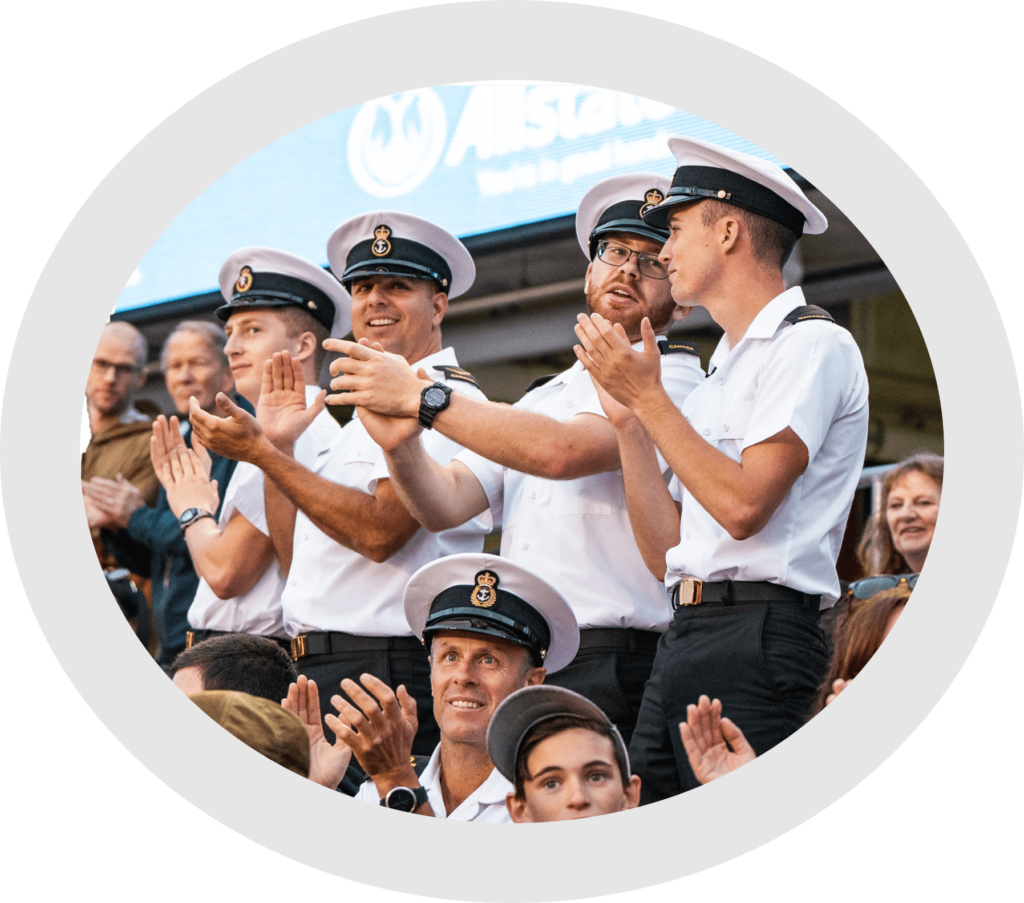- info@codingforveterans.com
- 1-800-317-0058
- info@codingforveterans.com
- 1-800-317-0058
- info@codingforveterans.com
- 1-800-317-0058
El objetivo de Coding for Veterans es ayudar a los militares canadienses en transición y a los veteranos actuales a pasar del servicio militar a empleos bien remunerados y de alta demanda en tecnologías de la información y ciberseguridad.
En el nivel más básico, la programación es una disciplina más amplia, mientras que la codificación se considera más estrecha. La codificación implica escribir muchas líneas de código para crear un programa informático. Algunos programadores más experimentados utilizan la palabra «codificador» para referirse a un desarrollador de software principiante (junior).
Quienes han servido en las Fuerzas Armadas canadienses suelen tener las aptitudes necesarias para convertirse en un buen programador. Se necesita bastante tiempo y práctica para llegar a ser un buen programador. Ser capaz de seguir instrucciones y mantener la concentración son atributos clave para aprender a programar.
Coding for Veterans tiene un formulario de solicitud en el sitio web. Una vez que alguien se registra y confirma que está en el programa de Transición o que ya está liberado, le pedimos que complete la Evaluación de Admisión de C4V.
La evaluación ayuda a determinar 3 cosas: si tienen la aptitud cognitiva general, la motivación personal y los rasgos de personalidad de colaboración más a menudo considerados fundamentales para los que trabajan en el entorno de codificación.
Hay dos vertientes: el nivel básico y una vertiente de ciberseguridad más avanzada para alguien con una experiencia significativa directamente relacionada. El mayor interés se dirige hacia el nivel básico, que es un programa universitario de ocho meses en el que se enseñan varios de los lenguajes de programación más demandados.
All Coding for Veterans training is delivered online and asynchronous so you can learn at home at your own pace. The basic program can be completed in 8 months and consists of four 7-week sprints of three courses per sprint. Intake to the Program is pretty well continuous, with a new cohort able to start every other month.
No conocemos ningún otro grupo como Coding for Veterans. Como miembros de la industria, empezamos centrándonos en el trabajo y adaptamos el proceso a las habilidades comunes de un veterano o de un militar en transición. La única métrica que nos importa es el buen trabajo sostenible que el veterano obtiene al final de la formación que impartimos.
No conocemos ningún otro grupo como Coding for Veterans. Como miembros de la industria, empezamos centrándonos en el trabajo y adaptamos el proceso a las habilidades comunes de un veterano o de un militar en transición. La única métrica que nos importa es el buen trabajo sostenible que el veterano obtiene al final de la formación que impartimos.


People in the CAF have significant training available throughout their service careers. They learn and develop many core soft skills in areas like: Leadership and teamwork, Structure and discipline, Adaptation to dynamic conditions, Commitment to the “right thing”, Loyalty, and Resilience. Coding benefits from all those skill sets.
But one thing that stands out – Security Clearance. If you can maintain your security clearance when you Release that has significant value in starting your new IT career!
It does. But you would need to follow the VAC process and have your learning program approved through that process. Once you register for the program you receive notice of acceptance from the College and that is what VAC needs in order to release your funding. You pay the College directly once you receive the funds from VAC. The College then generates your student number and gives you access to all the student materials in your program.
After the Intake Assessment and interview, C4V connects you to the College Coordinator, and then continues with a lead role in the Organizational Behaviour for Transitioning Veterans “Capstone” course. C4V provides industry mentors to help you in the move to the IT industry and arranges peer meet-ups – either virtually or in-person where appropriate. C4V provides industry news and insights to help you focus on the endpoint of your training.
You need to discuss that with your PSO. There are some programs within CAF that may allow you to start the training before full Release. If you qualify for sufficient funding in the Occupational retraining stream you would be able to take the C4V courses with proper authorization.
We have several employers tell us that they want to hire ever graduate we can get through the Coding for Veterans Program! There are over 182,000 IT jobs that will be unfilled by the end of 2020. Organizations like IBM, RBC, Federal and Provincial governments, even the Department of Defense is looking for this type of skilled person.
There are openings right across the country. Some require you to be in an office work environment and some can be done from home – and others are a hybrid with work-from-home options a few days a week.
Job titles vary with the skill or specialization. If you want to use the coding skills to be a Web Developer that is an option. Starting out one might be a Junior Software Developer, or a Systems Analyst. If you take a cyber security specialization you may be a Security Analyst.